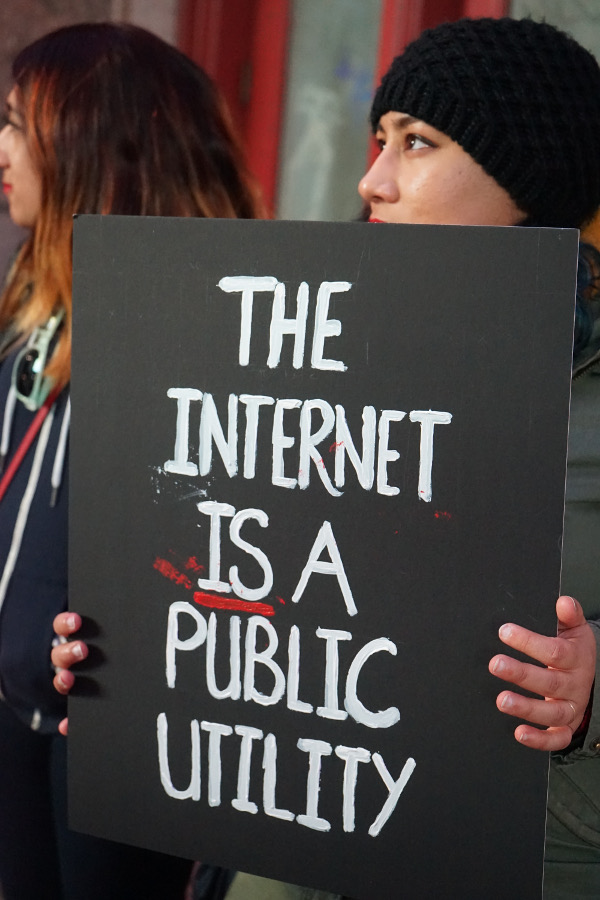
PHOTO/HARVEY FINKLE
Editor’s note: As we went to press, the Federal Communications Commission (FCC) lifted the rules that helped insure equal access to the Internet. The fight for public ownership of the Internet continues.
CHICAGO, IL — We’ve seen gigantic leaps and bounds in the past 60 years. From making massive strides in equality across the globe, to industrialization and increased productivity, we are all currently living in the most technologically advanced point in human existence. This is largely due to the Internet, the mainstay of our virtual lives, the driving force that connects us in ways we would have never imagined.
Unfortunately, like all great democratic and free sources we have come to rely on, this too is in jeopardy of changing for the worse. Net Neutrality is a set of principles that prevents Internet service providers from slowing down and blocking content or Web sites you use on a daily basis if they so happen to not align with said service provider’s political, moral, or business values. In 2015, the Federal Communications Commission was forced to adopt a set of guidelines otherwise known as the Net Neutrality rules to keep the Internet a free and open forum for everyone to access and use without tampering. Because of the 20 million activists who pressured the FCC, this framework was put on the books and was not to be revoked. That is, until Trump.
Trump’s current chairman for the FCC is a man by the name of Ajit Pai, an attorney who has served more than five years in this role. Pai’s proposal was to have been put to a vote on December 14. Approval of it could mean the eventual end of an open Internet as we know it. It’s hard to envision a United States where we don’t have freedom over the Web, and the ramifications of what might occur are detrimental to our society as a republic. Without Net Neutrality, cable conglomerates can divide the Internet into lightning-fast and horribly slow lanes; potentially block or slow down competitor content and charge larger companies fees to have their sites work faster.
These big Internet service providers have already had a history of vehemently protesting the Net Neutrality laws, and why wouldn’t they? According to the Leichtman Research Group, “Comcast, Charter, AT&T, and Verizon—account for about 76 percent of the 94.5 million Internet subscribers in the United States.” They have total control over the market share and what better way is there to cement their monopoly than to restrict what information we digest?
We have a duty to uphold freedom as a responsible and informed public. Part of doing our due diligence is making sure our voices are heard in instances where that is being opposed. A major component to combating the encroachment of our rights is to let your elected member of Congress know. A letter, a phone call, attending a town hall meeting and lodging your concerns can make a difference. We cannot let Net Neutrality be struck down. I firmly believe that it will lead to the silencing of marginalized groups who have been the victims of systemic and economic disparity, and will further the divides we already see widening.
